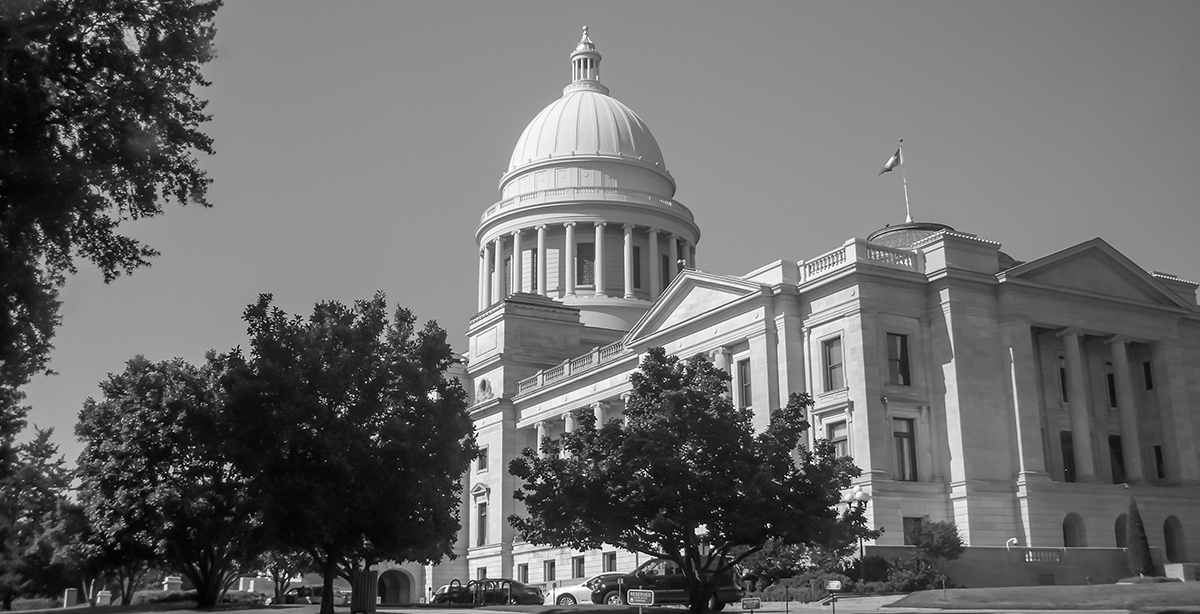On Monday, May 5, the Arkansas General Assembly officially adjourned its 2025 legislative session. Lawmakers wrapped up regular business on April 16, after introducing more than 1,600 bills, with 1,026 signed into law. Governor Sanders issued four vetoes, but the legislature declined to override them during its brief final meeting.
Healthcare
A prominent measure regulating pharmacy benefit managers (PBMs), HB 1150, was enacted. The law prohibits PBMs from holding direct or indirect interests in retail pharmacy permits. The State Board of Pharmacy has the authority to revoke permits for violations, though it may extend or renew permits for pharmacies providing essential care. This is a first of its kind measure passed in the country. “These massive corporations are attacking our state because we will be the first in the country to hold them accountable for their anticompetitive actions,” Senator Sanders said upon signing the bill. Similar legislation has been filed in New York, Oregon, and Texas among other states.
Another key healthcare measure, HB 1353, regulates vision benefit managers (VBMs). It expands the Insurance Department’s authority by classifying VBMs as health benefit plans, allowing coordination of vision and medical benefits. The bill also bans reimbursement discrimination based on a provider’s choice of lab, software, or equipment.
Several interstate compact bills were passed, streamlining licensure for physicians, physician assistants, dentists, EMS personnel, massage therapists, dieticians, and social workers to facilitate multistate practice for qualifying professions.
Education
SB 142, the “Bell to Bell, No Cell Act,” restricts student cellphone use during school hours to reduce distractions. Additional education measures include a temporary suspension of school letter grades to implement a new LEARNS Act-aligned accountability system. SB 433 requires public schools to display the Ten Commandments. Act 478 mandates instruction on the moral and religious beliefs of the Founding Fathers, while Act 134 updates social studies standards to include comparisons of the U.S. constitutional republic to other government forms.
Artificial Intelligence (AI)
Lawmakers had a focus on AI policies. HB 1876 establishes that individuals retain ownership of content they generate using AI tools, provided it doesn’t infringe on existing copyrights. HB 1071 expands legal protections to include a person’s likeness, voice, and photo when reproduced by AI. Protections for name, image, and likeness have been a hot button issue during the 2025 legislative sessions. About a dozen states, including New York and Massachusetts, still have active legislation on this issue pending.
Budget
Lawmakers approved major funding measures during the session. HB 2003 includes allocations of $1 million for foster care, $4.3 million for juvenile facilities, $13 million for maternal health initiatives, and $90 million for Educational Freedom Accounts. SB 290 provides $136 million for state property insurance, $100 million for Medicaid sustainability, and $90 million for the Education Funding Act.
What’s Next
There have been few indications that the legislature plans to reconvene before the 2026 legislative session. Governor Sanders noted after the legislature adjourned that a she could call a special session to revise state income taxes, but no further information has been released on this matter. The 2026 legislative session will be a fiscal session, the first once since the legislature revised session timelines. The 2026 fiscal session will begin at noon on the second Wednesday in April. During a fiscal session, only appropriation bills may be considered unless the legislature agrees by a 2/3 vote in both chambers to consider other issues.
